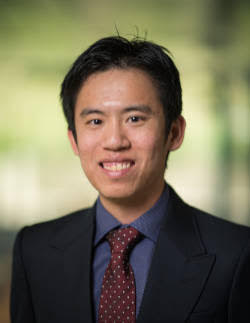
Department
School
Expertise
Biography
Dr. Gangkai Poh joined Catholic University of America in 2019, while holding concurrent research appointments as a research scientist at Goddard Space Flight Center in the Planetary Magnetosphere Laboratory and Ionospheric, Thermospheric, Mesospheric Physics Laboratory.
Dr. Poh’s research focuses primarily on the physical processes occurring within the plasma environments of planetary magnetospheres and the interaction of planetary magnetic field with the solar wind under quiet and extreme space weather conditions. Dr. Poh is also part of the magnetometer instrument teams for NASA’s Mars Atmospheric and Volatile Evolution (MAVEN) mission, and the Magnetospheric Multiscale (MMS) mission, where he analyzed the data collected by these spacecraft to study plasma phenomena occurring within the space environment of Mars and Earth.
Before joining Catholic University of America and NASA Goddard Space Flight Center, he received his Bachelor of Arts in Physics and Astronomy from the University of Colorado Boulder in 2012 while working with Prof. Daniel Baker as his research advisor. He then obtained his Doctor of Philosophy degree in Atmospheric and Space Sciences from the University of Michigan Ann Arbor in 2017 under the tutelage of his PhD advisors Prof. James Slavin and Prof. Xianzhe Jia. His doctoral thesis focuses on understanding the magnetic field morphology of Mercury’s magnetotail and studying the dynamics of filamentary structures in the Mercury’s northern cusp using data collected by NASA’s Mercury Surface, Space Environment, Geochemistry and Ranging (MESSENGER) mission.
Research Interests
Research interests include: Solar wind interaction with magnetized and un-magnetized planets, space plasma physics, magnetic field morphology and plasma phenomena occurring within planetary magnetosphere, magnetometry, planetary science, new data analysis techniques.
Society Membership
- American Geophysical Union
- European Geophysical Union
- Asia Oceania Geoscience Society
Current Projects
- Investigating foreshock transients and plasma waves at Mars and Earth
- Leading the Space Weather UnderGround (SWUG) project to develop low-cost ground magnetometers for space weather observation
- Investigating dynamics of earthward-moving dissipating flux rope in near-Earth magnetotail using MMS data [PhD Student: Nitya Agarwala (CUA)]
- Analysis of MESSENGER's Solar Wind Data and Comparison with BATS-R-US AWSoM Model Results [Students: Rayta Pradata (University of Delaware), Kamayani Richhariya (Drexel University)]
- Investigating Mars' disappearing Magnetic Pileup Boundary Using Machine Learning Approach and Mars Atmosphere and Volatile Evolution (MAVEN) Data [Student: Matilde Abreu (University of California Los Angeles)]
- Investigating Geological Sources of Methane on Pluto [Student: Roodra Manogaran (Louisiana State University)]
Other Activities
Dr. Poh have always been passionate about teaching and mentorship, devotes time and effort to education and mentorship of undergraduate students at CUA and NASA GSFC. He find both to be a humbling yet rewarding experience as he often learned more from his students than actually teaching them. Through his interaction with students, he has come to appreciate the concept of why “teaching others help us learn better” as he explained a physical concept to his class or interns while realizing the need to refresh his fundamentals. Having personally experienced supportive mentorship throughout his career, he also understood the importance of inclusive mentoring in the students’ performance and success. As such, he always seeks to create a similar conducive learning environment for his students to ensure a positive learning experience.Besides his research and teaching activities, Dr. Poh also engaged in various public service and outreach activities in support of the planetary science community. He volunteered his service in various planetary science committee, such as the Mercury Exploration Assessment Group (MExAG) Steering Committee, Inclusion, Diversity, Equity, and Accessibility Working Group (IDEA-WG) and the GSFC Planetary Science Director’s Council. He also serves in various NASA science proposal review panels and convenes science sessions in various U.S. and international conferences. He also delivered multiple outreach presentations on planetary science and space weather to a broader international audience, mainly high school to university students and industry professionals, as part of a larger effort to further promote planetary science research in regions traditionally under-represented in the global planetary science community (e.g. Southeast Asia).
